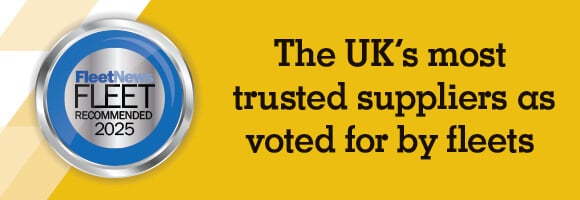The UK is expected to hit its millionth battery electric vehicle (BEV) registration next year, but new research suggests that the market could stall in 2024.
Figures from Cap HPI suggest that there were almost 900,000 BEVs on UK roads at the start of October (2023), with the data company expecting it to surpass one million in the next three months.
BEVs grew by 23,943 in the month, an increase of 20.1.% year-to-date, taking 15.6% market share, according to the Society of Motor Manufacturers and Traders (SMMT).
Plug-in hybrids increased by 14,285 (60.5%) in the month, now taking a 9.3% share, while hybrid electric vehicles also increased by 19,574 (20.6%), for a share of 12.7%.
The huge 200% increase in BEV registrations experienced between 2019-20 has yet to be repeated.
Matthew Freeman, managing consultant at Cap HPI, said: “October saw BEV uptake increasing for the 42nd successive month by 20.1% to 23,943 vehicles.
Separate data from Leasing.com showed that for the first time, business contract hire (BCH) lease enquiries for BEVs have outperformed diesel and petrol sales enquiries combined in quarter three.
BEVs were the most popular drive train, making up almost half (49%) of all business enquiries.
The Q3 sales enquiry data also show that all EVs, including hybrid, plugins, and battery cars, reached a significant 60% of all BCH enquires – the largest proportion since records began – following an 8% growth in enquiries compared to Q3 last year.
At the same time diesel enquiries saw the most dramatic fall in popularity, from 22% in Q3 of 2022 last year to 16% in the same period in 2023.
Paul Harrison, chief partnership officer, says leasing provides an affordable way for businesses to push the electric button in the most cost-effective way.
“Our data shows a continuing shift to electric through affordable fixed cost leasing agreements, with several key factors to the uptake,” he added.
“Indeed, the improved availability of EV’s and the preferential tax regime which reduces costs for employers and their employees wanting to switch to electric is boosting EV popularity.”
Freeman says that BEV registrations are being driven mainly by the fleet sector with private registrations accounting for less than one in four new BEVs this year.
“This highlights the requirement for further incentivisation for private drivers,” he added. “However, we are predicting that February 2024 will see the milestone of one million BEV’s on UK roads for the first time.”
BEV demand may stall next year

Driven by a lack of incentives in the retail market, Bloomberg is suggesting in a new report that BEV demand could stall next year (2024).
Bloomberg Intelligence’s (BI’s) new car buyers' poll suggests sales will suffer in Europe with consumers wary due to high BEV prices, range anxiety and a lack of charging points.
BEVs are, on average, priced 30% above internal combustion engine vehicles (ICE) in Europe.
Mike Dean, BI senior industry analyst (Autos), said: “Our BI consumer new-car buying poll in September highlighted European buyers' concern over the high price of BEVs.
“Charging infrastructure is the biggest challenge, for which there is no quick fix to service a growing BEV fleet. Only 16% of respondents intend to buy a BEV in the next 12 months, which matches the current market share in Europe.”
In the UK, more than a third of recent car buyers decided against buying an electric vehicle (EV) because of cost of living concerns, according to the latest research from What Car?.
In a survey of 2,525 UK drivers, more than half (1354) told What Car? they had either recently bought a new car or were actively in the market for a new model. Of those who had already made their purchase, 36% admitted they ditched plans to buy an EV in favour of a hybrid, petrol or diesel due to money worries.
It was a similar story among motorists currently shopping for a new car, with 42% admitting that inflation, energy costs, interest-rate pressures and high list prices had led them to rule out EVs in favour of hybrid, petrol or diesel models.
What Car?’s research also exposed how those financial concerns are impacting when people are looking to buy their next car; more than half (58%) are delaying by six months or more.
For those that have no choice, and need to buy, many are switching to more affordable second-hand vehicles. Of the 39% of in-market buyers who are now looking to purchase a used car, 30% say their decision not to buy new has been influenced by the cost of living.
New ways to support the EV market
IVendi says that car manufacturers and their captive lenders need to find ways to support the new EV sector to overcome growing buyer objections.
The motor retail technology company explains that factors such as high prices, delaying the EV production deadline to 2035, and rapidly rising insurance premiums are all causing some potential buyers to lose confidence in the market.
James Tew, CEO of iVendi, said: “Despite the Government’s recent move to set back the electrification production deadline, existing manufacturer plans and the EV mandate means that the new market still needs to electrify very quickly. The rising supply we are going to see will demand it. However, outside of the company car sector, buyers appear to be increasingly lukewarm.
“There are several reasons behind this. The 2035 postponement itself is likely to lead to more confusion about EVs and indicate to many people that the whole subject of electrification is a can that has been kicked down the road. At least some private buyers who were planning to buy an EV are now probably rethinking.
“Also, we are seeing issues regarding insurance, with premiums for EVs rising exponentially and even causing some existing owners to reportedly sell their cars because the cost has become prohibitive.
“It all creates a high degree of uncertainty in the minds of people who thought their next car would be electric.”
IVendi believes that, with large numbers of EVs due to start arriving on the market in the next couple of years, ways need to be found to create more confidence in electric cars as a proposition – and manufacturers and their captive lenders had a role to play.

“The obvious route is discounting but in our opinion the optics of this are wrong,” said Tew. “While there may be longer term, downward price adjustments for EVs as manufacturing costs fall, it would be damaging if it looked as though what is essentially still a new technology was being dumped on the market.
“Supporting the future residual value in order to reduce PCP costs would be a better route. Obviously, this risk will only be realised if the vehicle is handed back and within a typical 3-4 year contract, we are likely to see a recovery in values, anyway.
“Other options include to better promote leasing products where there needs to be no public disclosure of pricing.
“However, consumers have a mindset that PCP gives them all the upside of reward without the risk, and most have enjoyed a positive experience over recent years with the rise in used car values.
“Personal Contract Hire (PCH) still isn’t the funding method of choice and there’s much to do to convince the consumer. Ultimately price will be the biggest driver – making a 3- or 4-year deal comparatively cheaper on a lease versus a PCP will start to win hearts and minds.”





















Login to comment
Comments
No comments have been made yet.